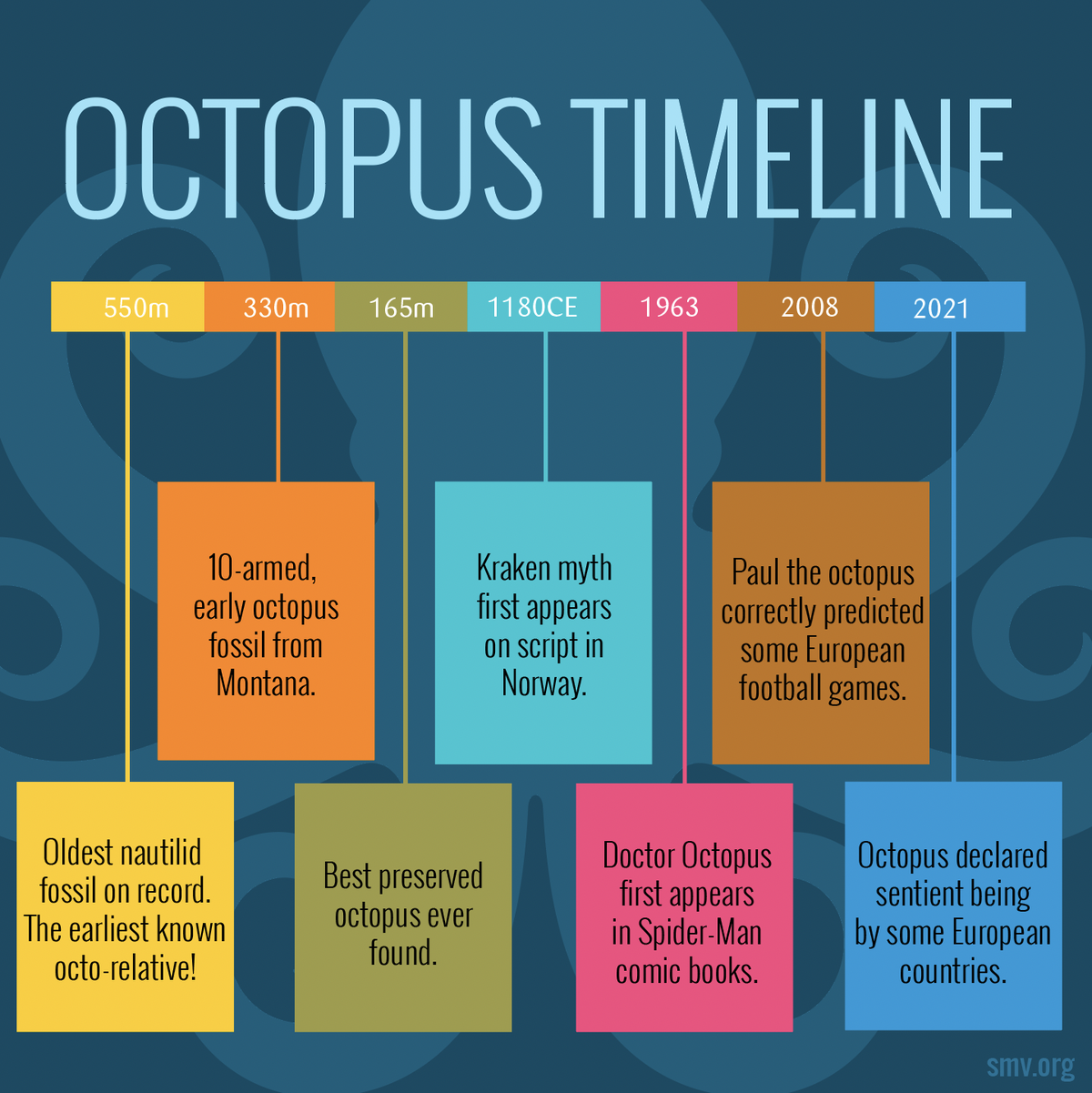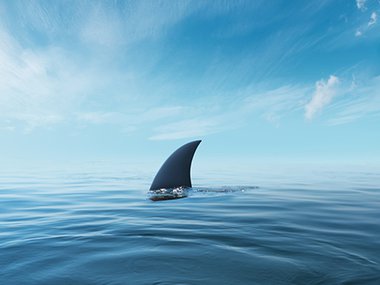Question Your World: When Did the Octopus First Appear on Earth?
What has ten arms, two bad puns and 330 million years of history? Today’s science story! So, when did the octopus first appear on Earth? Well, researchers just announced a discovery of the oldest-known relative of the octopus, dating back a whopping 330 million years … as in millions of years before the dinosaurs!
That’s right, a 330-million-year-old fossil found in Montana is making big news because of both how old it is, but also how many arms it had: ten. Yes folks, that means it was capable of giving ten tickles!
This discovery hints at how the oldest and earliest diverging relatives of octopuses, the vampyropods, might have looked. Present-day vampire squid, Vampyroteuthis, have eight arms along with two thread-like tentacles. Perhaps over millions of years of evolution, those extra two arms became the tassel-like tentacles we see on Vampyroteuthis today.

This ancient fossil also shows evidence of a potential ink sack used to evade predators, just like in modern octo-life! Further research will be needed to officially answer many questions asked about this discovery, but it’s rare fossils like this that help us better understand the evolution of these soft, squishy animals which need very specific conditions to fossilize.
Interestingly, this fossil was discovered all the way back in 1988—when Die Hard and Big were in the theaters. Yippee-ki-yay, science lovers! The ancient discovery was given to a team of researchers in Ontario where it sat all these years until just recently when it was identified and shared with the world. This is quite a common story in museums, especially those with massive collections: it’s not unheard of for items to sit in storage for years or decades before anyone has a chance to study and announce any results. This is primarily due to the lack of available scientists and necessary funding.
Nonetheless, this ancient octopus relative is a great example of how researchers, spanning nearly 40 years, are able to put knowledge about cephalopods within arm’s reach!

